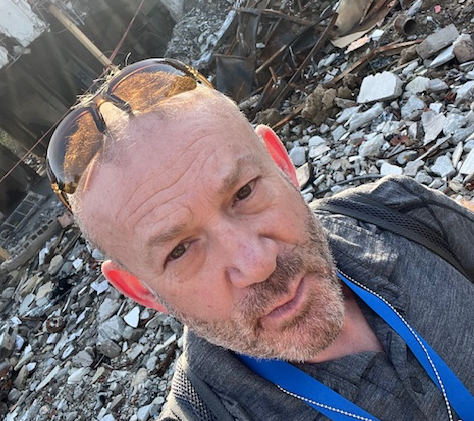
Faculty Profile: Joshua Lipsitz
May 24, 2012
Department of Psychology
Prof. Joshua Lipsitz of the Department of Psychology is a practicing clinician who specializes in short-term interpersonal psychotherapy. This approach emphasizes the patient’s interpersonal context as a contributing factor to problems such as depression, and aims to help patients function better socially, and thereby decrease symptoms.
Lipsitz is especially interested in training people in the use of this approach, referred to as ITP. It is not well known in Israel.
“ITP examines current life problems in the interpersonal context as being involved in maintaining the disorder. Focusing on the person’s interpersonal relationships is seen as the key to ameliorating symptoms.”
He believes ITP is more effective in treating depression than cognitive behavioral therapy, including Dialectical Behavior Therapy (DBT), which is often used. He also advocates for the use of short-term therapy rather than medication for chronic depression, except in severe cases.
Prof. Lipsitz has adapted this treatment to anxiety disorders. He is currently looking at social anxiety related to use of the Internet. One experiment showed that when people who measured high on social anxiety participated in online chat, they experienced less stress during subsequent face to face conversation.
“So does chat move people away from social contact or toward it? Online chat is a social facilitator,” he says.
Another study is examining the effect of psychotherapy approaches delivered by telephone to patients with a variety of medical concerns.
“We’ll look at the impact on a number of outcomes, including patients’ own sense of stress but also how it affects their utilization of medical services.”
Yet another project studies individuals with chronic pain, including children with pain symptoms but without medical findings.
Lipsitz considers the department’s strength in neuroscience—“the wave of psychology’s future”— extremely important. This was one of the things that drew him to BGU four years ago.
“I think now there’s much more understanding that clinical therapy has become a rigorous science and decisions on diagnosis and treatment are influenced by empirical studies. Until recently people in Israel would just decide on an approach—like psychoanalysis—despite the fact that clinically depressed persons, for example, often don’t respond well to that and may do better with more focused treatments. This development owes a lot to neuroscience findings, which help elucidate the mechanisms.”
Read more about BGU’s Department of Psychology in the Spring 2012 issue of Impact >>
ABOUT AMERICANS FOR BEN-GURION UNIVERSITY
By supporting a world-class academic institution that not only nurtures the Negev, but also shares its expertise locally and globally, Americans for Ben-Gurion University engages a community of Americans who are committed to improving the world. David Ben-Gurion envisioned that Israel’s future would be forged in the Negev. The cutting-edge research carried out at Ben-Gurion University drives that vision by sustaining a desert Silicon Valley, with the “Stanford of the Negev” at its center. The Americans for Ben-Gurion University movement supports a 21st century unifying vision for Israel by rallying around BGU’s remarkable work and role as an apolitical beacon of light in the Negev desert.
About Ben-Gurion University of the Negev
Ben-Gurion University of the Negev embraces the endless potential we have as individuals and as a commonality to adapt and to thrive in changing environments. Inspired by our location in the desert, we aim to discover, to create, and to develop solutions to dynamic challenges, to pose questions that have yet to be asked, and to push beyond the boundaries of the commonly accepted and possible.
We are proud to be a central force for inclusion, diversity and innovation in Israel, and we strive to extend the Negev’s potential and our entrepreneurial spirit throughout the world. For example, the multi-disciplinary School for Sustainability and Climate Change at BGU leverages over 50 years of expertise on living and thriving in the desert into scalable solutions for people everywhere.
BGU at a glance:
20,000 students | 800 senior faculty | 3 campuses | 6 faculties: humanities & social sciences, health sciences, engineering sciences, natural sciences, business & management, and desert research.
For all press inquiries, please contact:
James Fattal, J Cubed Communications
516.289.1496



